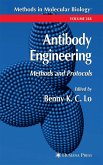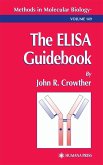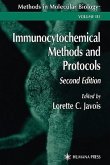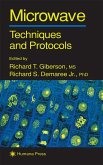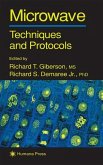Immunochemical techniques have been in use for many years with early examples of bacterial strain typing dating back to the 1940s. The basis for the science is the exquisite elegance of the mammalian immune system with its ability to recognize foreign proteins and to manufacture antibody m- ecules that strongly bind to the substances that elicited them. Not only are potentially harmful pathogens and toxins recognized by the immune system, but the system can be persuaded to manufacture antibodies to an astonishing array of substances. In the early days of this science, all antibodies for investigative work were produced by immunizing mammals with the substance of interest, followed by regular donor bleeds that yielded antisera. Serum produced in this way yields heterogenic populations of antibody molecules recognizing different epitopes on the target protein, which may be adequate for its intended p- poses, but can also cause problems of crossreactivity. In 1975, Kohler and Milstein reported that spleen cells from immune donor animals could be immortalized, cloned from single cells, and grown in continuous culture. This original work described the method for the production of monoclonal antibodies.
Reviews of Previous editions:
"...a treasury of detailed information, both within the protocols and in the Notes, which in some chapters are extensive...will be useful to both those who already have some experience in this area and...to those who wish to embark on new techniques."
-Microbiology Today
An excellent and well arranged compilation of a range of antibody techniques....An excellent laboratory manual.-Immunoassay
"...a treasury of detailed information, both within the protocols and in the Notes, which in some chapters are extensive...will be useful to both those who already have some experience in this area and...to those who wish to embark on new techniques."
-Microbiology Today
An excellent and well arranged compilation of a range of antibody techniques....An excellent laboratory manual.-Immunoassay



